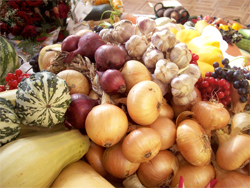This June, primary and secondary schools across the UK will be involved in a two week focus on British farming and food production during Farming Fortnight.
Organised by leading education organisation LEAF Education, Farming Fortnight runs from 6-17 June 2022. A wide range of engaging and informative national curriculum linked resources and materials on farming, food production and the natural environment will be downloaded by hundreds of schools for this two-week immersion into the world of farming. Topic sheets, lesson plans, case studies and videos exploring different farming sectors will support teachers in delivering inspiring lessons and activities. Each day has its own farming theme and social media hashtag to encourage schools and students to share their learning experiences – these include #MilkingMonday, #WoollyWednesday, #FishyFriday and #TastyTuesday! Schools and students are encouraged to share their learning experiences on social media.
LEAF Education Director of Education and Public Engagement, Carl Edwards, explained: “Farming Fortnight provides an exciting and inspiring platform to educate and connect children and young people with where their food comes from. This is of course vital for ensuring that they lead healthy, active lifestyles, make the best food choices – all while capturing their enthusiasm, to connect with topical issues around climate change, healthy diets, wellbeing and showcasing the range of future career opportunities available within the agricultural sector.
“Now in its fourth year, Farming Fortnight has seen continued growth in popularity and is an established date in the academic year. Since it was launched, we have seen over 3.5 million people engaging with Farming Fortnight through resources, videos and on BBC’s Countryfile. We hope that 2022 is our biggest year yet with even more schools and young people taking part and enjoying our fantastic resources!”
Farming Fortnight is supported by Farming Minister, Victoria Prentis, who said: “Farmers produce the food we eat and care for the environment that we rely on. Farming Fortnight is an excellent initiative, and I passionately believe that we should teach children about the work that our farmers do. In the next fortnight, thousands of young children will engage with food and farming in a positive and interactive way, and I urge as many schools as possible to take part.”
Farming Fortnight was developed as a result of LEAF’s Pioneering teenager research and in collaboration with staff and students from Brockhill Park Performing Arts College.
Farming Fortnight runs from 6-17 June. It is free for schools to get involved and all campaign resources are available from www.countrysideclassroom.org.uk/farmingfortnight
New survey results released by WWF-UK have revealed that 85% of parents of Primary school age children are willing to change their family diet to help protect the environment. However, only 13% of parents are currently taking steps to improve their impact, with a lack of information on the subject holding many of them back. This new survey has encouraged the organisation to launch a new Plant2Plate campaign for 2016.

The rising costs of key staples, such as food and energy, are continuing to have an impact on schools across the country, as business managers, bursars and senior leadership teams look to control their budget for the second half of the academic year.
What can schools do in order to be smarter when purchasing food items? And, importantly, how to do it without impacting on availability, quality, nutritional standards or exceeding budgets?
Below are some practical tips that school leadership teams can consider:
 Through my involvement with catering in the education sector over the last 20 years or so, I have seen many business cycles. In state schools we have gone from the service of a very limited, home cooked but highly subsidised offer; to very commercial burger, chips and fizzy drinks with little staff input and profit returns; then Jamie Oliver’s intervention causing mass panic; to today, with the emergence of a more common sense approach. Today’s pupils are very “High Street” and value wise, but after the last 5 or so years of health messages, they are also looking for “good” food. Whilst most caterers and School Business Managers have great common sense, trying to comply with the onerous School Food Standards seemed impossible and with the resulting stagnation in sales and free meal uptake, not entirely the right strategy either. Certainly, caterers needed to improve things; as a father of four, I would not be happy with my children being offered burger and chips every day, however, to dramatically move to the full implementation of the standards was, in my opinion, too far too fast.
Through my involvement with catering in the education sector over the last 20 years or so, I have seen many business cycles. In state schools we have gone from the service of a very limited, home cooked but highly subsidised offer; to very commercial burger, chips and fizzy drinks with little staff input and profit returns; then Jamie Oliver’s intervention causing mass panic; to today, with the emergence of a more common sense approach. Today’s pupils are very “High Street” and value wise, but after the last 5 or so years of health messages, they are also looking for “good” food. Whilst most caterers and School Business Managers have great common sense, trying to comply with the onerous School Food Standards seemed impossible and with the resulting stagnation in sales and free meal uptake, not entirely the right strategy either. Certainly, caterers needed to improve things; as a father of four, I would not be happy with my children being offered burger and chips every day, however, to dramatically move to the full implementation of the standards was, in my opinion, too far too fast.
Through our recent tendering work with many secondary schools we are seeing an on-going development of excellent and exciting food offered to pupils. At last, the range of dishes offered each day is reducing so that real chefs and customer focused service assistants have time to improve the freshness, quality, presentation and service of real stone baked pizzas, hand carved roasts with all the trimmings and fresh vegetables, made to order hot salads, freshly battered fish and chips, whole roasted chickens, a deli offering a range of breads and fillings, the aroma of a real Italian cappuccino and fresh fruit and smoothy bars... I could go on!

A community-driven platform for showcasing the latest innovations and voices in schools
Pioneer House
North Road
Ellesmere Port
CH65 1AD
United Kingdom